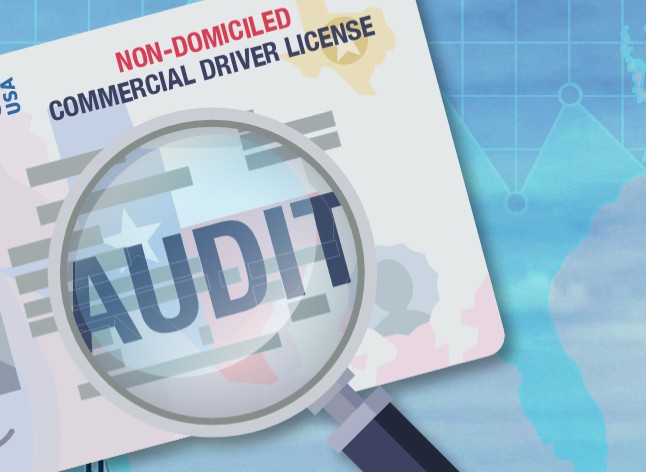DOT Rule could Sideline 194,000 Non-Domiciled CDL Holders
The U.S. Department of Transportation (DOT) has issued an interim final rule that immediately tightens how states issue and renew non-domiciled commercial driver’s licenses (CDLs). Based on federal findings and DOT’s own projections, as many as 194,000 current non-domiciled CDL holders may lose eligibility at renewal over the next two years, a move federal officials say is necessary to restore integrity and improve roadway safety.
What changed — and why it matters
The rule sharply narrows who can obtain or keep a non-domiciled CDL. Going forward, applicants who are not U.S. citizens must present a valid foreign passport and Form I-94 reflecting one of a few employment-based visas (H-2A, H-2B, or E-2); states must verify status through DHS’s SAVE system; renewals must be in-person every year; and each credential must expire when work authorization expires or in one year — whichever comes first. States must also downgrade these CDLs when they learn a holder is no longer eligible.
The action follows an FMCSA review that found systemic non-compliance in several states — including California, Colorado, Pennsylvania, South Dakota, Texas, and Washington — with examples of licenses issued to ineligible drivers or set to expire months or years after the person’s lawful presence ended. DOT called the combination of improper issuances and regulatory gaps an “imminent hazard” warranting emergency action.
The scale of the impact
DOT and FMCSA say they’ve identified roughly 200,000 non-domiciled CDLs and 20,000 commercial learner’s permits (CLPs) currently in circulation. Under the new screening and renewal rules, the agencies expect about 194,000 drivers to exit the market as credentials come up for renewal. FMCSA’s rulemaking also anticipates that freight markets will adjust as capacity tightens — through rate movements and new, compliant entrants — similar to prior regulatory shifts.
California put on notice — funding leverage in play
Citing “egregious” violations, DOT has ordered California to pause the issuance of non-domiciled CDLs, conduct an internal audit, and revoke/re-issue improperly granted credentials. The state has 30 days to comply or face decertification of its CDL program and a potential loss of nearly $160 million in federal highway funds in year one.
This latest move arrives alongside a separate DOT push to enforce English-language proficiency (ELP) at the roadside. DOT has warned that states resisting ELP enforcement risk losing Motor Carrier Safety Assistance Program (MCSAP) dollars; California, for example, received about $30 million in MCSAP funding in 2024 and has been publicly called out for non-compliance.
Safety rationale and recent crashes
FMCSA’s audit and crash data — including several fatal incidents in 2025 involving non-domiciled CDL holders — underpin the rule. Officials argue that some of those drivers were improperly licensed, while others would be ineligible under today’s tightened criteria, reinforcing the decision to act immediately via an interim final rule rather than wait through a standard rulemaking timetable.
What carriers and drivers should do now – Truck Owners and Drivers Association guidance
- Audit your roster. Identify any non-domiciled CDLs and confirm visa class, I-94 validity, and renewal timelines. Expect in-person renewals and status checks.
- Prepare for state pauses. States that issue non-domiciled CDLs/CLPs may temporarily halt issuances while they come into compliance; plan for onboarding delays.
- Budget for market shifts. If 5% of CDL holders are sidelined, lanes with thin capacity may see rate firming until supply rebalances.
- Document language proficiency. Given ELP enforcement, ensure drivers can demonstrate required English proficiency to avoid out-of-service orders.
What’s next
DOT has signaled it will continue auditing states and pressing for uniform enforcement. California and other flagged states face near-term deadlines and possible funding consequences. Meanwhile, carriers employing non-domiciled drivers under H-2A/H-2B/E-2 visas should expect annual, in-person renewals tied to immigration status — and keep meticulous files to avoid downgrades.
Truck Owners and Drivers Association note: We support rigorous, even-handed safety enforcement that targets improper licensing while preserving a lawful pathway for qualified, employment-based non-citizen drivers. We’ll continue monitoring implementation, market impacts, and any state-level adjustments members need to know about.
Further reading on the policy shift and leadership context


